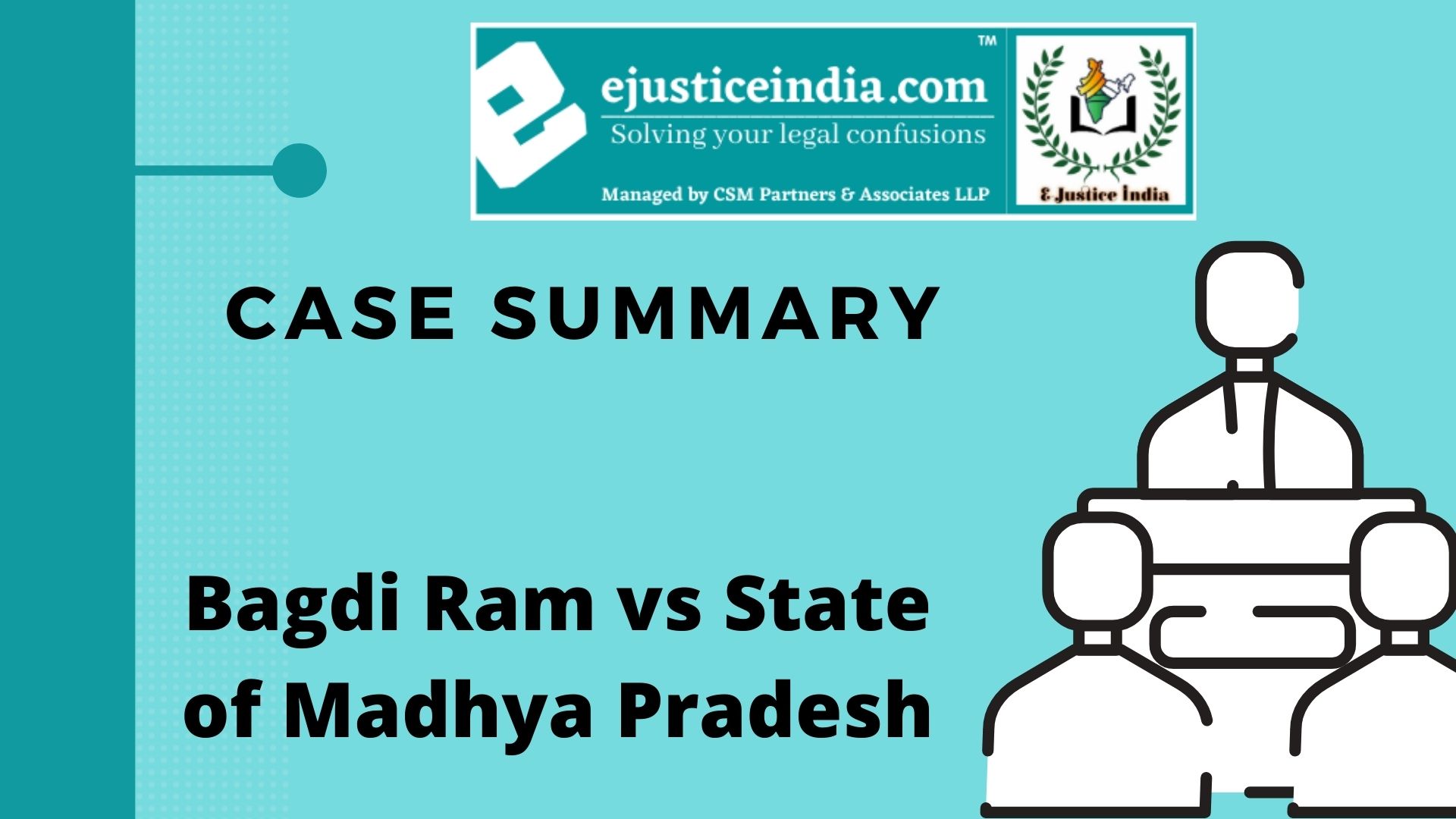Kedar Nath Singh vs. State of Bihar – Case Summary
Author: Mayank raj
Case: Kedar Nath Singh vs. State of Bihar.
Citation: 1962 AIR 955, 1962 SCR Sulp. (2) 769.
Bench: Bhuvaneshwar Prasad Sinha (C.J.), A.K. Sarkar, J.R. Madholkar, N.Rajagopala Ayyangar, S.K.Das.
Introduction–
Thomas Babington Macaulay who drafted the sedition law and was added in the Indian Penal code in 1870, section 124A which says that use of any words spoken, written or sign which brings hatred or contempt against the Government would be considered as an offence.
In the first time of history of Independent India, the Supreme Court has to decide legality of sedition law under section 124A of IPC and the fundamental rights to free speech under article 19 of the constitution. A disputed legal contention that is generally left for a judge to decide regarding the constitutional validity of section 124A and section 505 of IPC in the security of state and public order.
While this section of the IPC referring to the judicial history, the court had to face directly conflicting of Section 124A concerning same issue. While one of the judgments given by Federal Court and the other one the judgment made by Privy Council.
The judgment were given by the Federal Court in the case of Niharendu Dutt Majumdar vs. The King (1942) F.C.R. 38 judgment given that the section shall fall within the ambit of reasonable and permissible legislative restriction on the fundamental right of freedom of speech and expression. In the case King-Emperor vs. Sadashiv Narayan Bhalerao I.L.R. (1947), the Privy Council held that the impugned sections are liable to be quashed as unconstitutional in view of Article 19(1) (a) read along with article 19(2).
Facts–
The case was related to the offensive words used by Kedar Nath Singh. He was a member of Forward Communist Party Bihar; he called the dogs to the C.I.D and goondas to Indian National Congress. He also told, he believes in the revolution which will come in the flames of the capitalists, zamindars and the Congress leader of India, who have made it a profession to loot the country are going to be reduced to ashes and on their ashes are established a Government of poor and therefore the downtrodden people of India. In addition, he targeted Vinobha Bhave’s attempts to redistributed land.
The case was filed against Kedar Nath Singh under Section 124A Sedition and Section 505 Public Nuisance on the statement that given by him and sentenced him to undergo rigorous imprisonment of one year.
The matter went to the Patna High Court and headed by the single judge bench Justice Naqui Imam and the conviction has upheld the sentence and the dismissed the appeal. In the course of the learned judges observed that the charges against the appellant were nothing but vilification of the government that it was full of incitements to revolution and that the speech taken as a whole was certainly seditionus.
Further, the matter went to the SC about the constitution validity of Section 124A and Section 505 of IPC and the matter were referred to constitution bench.
Issue and fact of law–
- Whether Sections 124A and 505 of the Indian Penal Code are ultra vires in view of Article 19(1) (a) read with Article 19(2) of the Constitution?
- Whether the intention or tendency to create disorder, or disturbance of law and order, or incitement to violence is required to constitute the offence of sedition?
Judgment–
The judgment of the Court was delivered by a bench constituted of magistrate B.P. Sinha and Justices A.K. Sarkar, J.R. Mudholkar, N. Rajagopala Ayyangar, and S.K. Das. The court said that, the restriction on the correct freedom of expression protected under Article 19(1) (a) of the constitution. The court however noticed that the reasonable restrictions imposed on certain grounds including ‘public order’. If a restriction is kept with Article 19(2), it is constitutionally valid. The Court emphasized that the phrase “Government established by law” under section 124A must be distinguished from criticism of a selected party or persons. The Court stated that this interpretation finds support from the title of the relevant under the Indian legal code, which is headed “Offences against the State”. The court further said that the state has to maintain essential peace and stability, statements that comprise section 124A would disturb public order. The court also held that the offense of sedition is constituted, when the words were spoken have the tendency or intention to form disorder or disturb public peace by resort to violence. this can be a sound restriction on the proper to freedom of expression, because the State may restrict speech within the interest of protecting public order. The court also elaborates that any speech spread disaffection or enmity without provoking any violation overthrow of the govt.; it might be unconstitutional. A statute must be interpreted with due relevancy to the mischief it seeks to correct and its legislative history. However, the court said that the punishment under Section 124A only if statements that incite public disorder. Besides, the Court held that Section 505 was constitutionally valid; it absolutely was an inexpensive restriction on the correct to freedom of expression within the interest of protecting public order. Appeal was dismissed and appeals was remanded to the High Courts for decisions in line with the Court’s direction.
A Constitutional Bench of SC held that the validity of Section 124-A but laid down that a person can be charged with sedition only if there is incitement to violence in his speech or writing or an intention or tendency to make disorder or disturbance of law and order.


